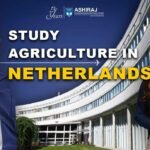
Agriculture in Switzerland
Agriculture in Switzerland represents a blend of tradition, innovation, and sustainability amidst the country’s diverse geographical landscape. Nestled within the heart of Europe, Switzerland’s agriculture is shaped by its mountainous terrain, with only a small portion of its land suitable for cultivation. The Swiss agricultural sector emphasizes high-quality production, focusing on dairy farming, livestock, and specialized crops like grapes for its renowned wine industry. Despite its challenges, such as limited arable land and strict environmental regulations, Swiss farmers leverage modern techniques and government support to maintain productivity while preserving natural resources.
The agricultural sector in Switzerland plays a crucial role in both its economy and cultural identity. With approximately one-third of the country’s land dedicated to farming, Switzerland’s agriculture not only meets domestic demand but also contributes significantly to its export economy. The sector’s resilience lies in its adaptation to climate variations and sustainable practices, ensuring the preservation of its picturesque landscapes and ecological balance. As Switzerland navigates global agricultural trends and local challenges, innovation remains key to sustaining its agricultural heritage while meeting the demands of a modern economy.
Why to Study Agriculture in Switzerland?
- Innovation and Technology: Switzerland is at the forefront of agricultural research and technology, offering students access to cutting-edge innovations in farming practices and sustainability.
- Quality Education: Swiss universities and agricultural institutions provide world-class education with a focus on practical skills and theoretical knowledge, preparing students for global careers in agriculture.
- Diverse Agricultural Landscape: From Alpine pastures to fertile valleys, Switzerland offers a diverse environment for studying various agricultural practices, including dairy farming, viticulture, and organic agriculture.
- International Networking: Studying agriculture in Switzerland provides opportunities to network with industry leaders, researchers, and policymakers from around the world, enhancing career prospects and knowledge exchange.
- Emphasis on Sustainability: With strict environmental regulations and a commitment to sustainability, Swiss agriculture emphasizes eco-friendly practices and resource management, crucial for future agricultural professionals.
- Career Opportunities: Switzerland’s strong economy and global reputation in agriculture open doors to diverse career opportunities in agribusiness, research, consulting, and governmental organizations.
- Cultural Experience: Beyond academics, studying agriculture in Switzerland offers a chance to immerse oneself in Swiss culture, cuisine, and traditions, enriching the overall educational experience.
Studying agriculture in Switzerland not only equips students with practical skills and theoretical knowledge but also prepares them to tackle global agricultural challenges with innovative solutions and sustainable practices.
Top Universities to Study Agriculture in Switzerland
University | QS World University Rank 2023 | Type of University | Average Annual Fees | Programs Offered |
ETH Zurich | 6 | Public | CHF 1,300 | Agricultural Sciences, Environmental Sciences, etc. |
University of Zurich | 62 | Public | CHF 1,300 | Agricultural Economics, Plant Sciences, etc. |
University of Basel | 84 | Public | CHF 1,300 | Agricultural Biology, Environmental Sciences, etc. |
University of Bern | 90 | Public | CHF 1,300 | Agricultural Economics, Animal Sciences, etc. |
EPFL (École Polytechnique Fédérale de Lausanne) | 18 | Public | CHF 1,300 | Environmental Sciences, Agricultural Engineering, etc. |
Studying at one of Switzerland’s top universities for agriculture offers unparalleled opportunities for students aiming to excel in this dynamic field. These institutions are renowned for their rigorous academic programs, cutting-edge research facilities, and commitment to sustainability in agriculture. With diverse programs ranging from agricultural economics to environmental sciences, students can tailor their education to meet global agricultural challenges. The average annual fees are affordable compared to international standards, making Swiss universities an attractive choice for both domestic and international students pursuing excellence in agriculture. Whether interested in traditional farming techniques or exploring the latest advancements in agricultural engineering, studying at these universities prepares graduates for impactful careers in Agriculture in Switzerland and beyond
Course Curriculum for Agriculture in Switzerland
- Foundational Courses: The curriculum typically begins with core courses in agricultural sciences, covering topics such as soil science, crop physiology, and agricultural economics.
- Specialized Tracks: Students can choose from specialized tracks such as sustainable agriculture, agricultural engineering, or viticulture, tailored to their interests and career goals.
- Practical Training: Hands-on experience is emphasized through internships and fieldwork, allowing students to apply theoretical knowledge in real-world agricultural settings.
- Research Opportunities: Switzerland’s universities encourage research in agriculture, offering students opportunities to engage in cutting-edge projects on topics like climate-smart agriculture and biotechnology.
- Interdisciplinary Approach: The curriculum often integrates interdisciplinary perspectives from environmental sciences, economics, and technology, preparing students for multifaceted challenges in modern agriculture.
- Global Perspectives: Courses often include global perspectives on agriculture, addressing international trade, food security issues, and sustainable development goals.
- Industry Collaboration: Collaboration with industry partners enhances the curriculum, providing insights into current practices and fostering professional networks crucial for career advancement in Agriculture in Switzerland.
Switzerland’s agriculture course curriculum blends theoretical knowledge with practical skills and research opportunities, ensuring graduates are well-equipped to address the complexities of Agriculture in Switzerland and contribute to global agricultural advancements
Eligibility Criteria & Admission Requirements for MS in Agriculture in Switzerland
- Language Proficiency:
IELTS: Minimum score of 6.5 overall
TOEFL: Minimum score of 90 (iBT)
- Standardized Tests:
GRE: Not typically required but beneficial for some programs
GMAT: Not typically required but may be requested for certain management-related agricultural programs
- Academic Requirements:
Passport & Student Visa: Valid passport and appropriate student visa for the duration of study
Academic Certificates: Certified transcripts and diplomas demonstrating completion of previous academic qualifications, typically including secondary education certificates and bachelor’s degree for master’s programs.
- Work Experience:
Relevant work experience in agriculture or related fields may be beneficial for certain advanced programs or research positions.
- Additional Requirements:
Some universities may require letters of recommendation, a statement of purpose, and/or interviews as part of the application process.
- Financial Documentation:
Proof of financial means to support living expenses and tuition fees during the study period in Switzerland.
Prospective students interested in pursuing studies in Agriculture in Switzerland should carefully review the specific requirements of their chosen universities and programs, ensuring they meet all eligibility criteria and submit a comprehensive application package to enhance their chances of admission
Documents Required for Studying Agriculture in Switzerland
- Passport:
A valid passport with a minimum validity of six months beyond the intended period of stay.
- Letters of Recommendation (LOR):
Two letters of recommendation from academic or professional referees highlighting the applicant’s skills, achievements, and suitability for the program.
- Statement of Purpose (SOP):
A well-written statement outlining the applicant’s academic background, career goals, and reasons for choosing a specific agricultural program in Switzerland.
- Curriculum Vitae (CV):
A detailed resume showcasing educational qualifications, work experience, research projects, publications (if any), and extracurricular activities related to Agriculture in Switzerland.
- Official High School Transcripts and Certificates:
Certified copies of high school transcripts and certificates demonstrating successful completion of secondary education, including grades and subjects studied.
- Work Experience Certificate:
If applicable, a certificate verifying relevant work experience in agriculture or related fields, highlighting roles, responsibilities, and duration of employment.
- Proof of Financial Resources:
Documentation proving the availability of sufficient funds to cover tuition fees, living expenses, and other costs throughout the study period in Switzerland.
Prospective students should ensure all documents are accurately prepared, translated (if necessary), and submitted as per the requirements of the chosen university and Swiss immigration authorities. Adherence to these document requirements is crucial for a smooth application process for Agriculture in Switzerland programs
Admission Process for Agriculture in Switzerland
- Research Programs: Explore various universities in Switzerland offering agriculture programs and carefully review their admission requirements, curriculum, and faculty expertise.
- Check Eligibility: Ensure you meet the minimum academic qualifications, language proficiency (IELTS/TOEFL), and any standardized test (GRE/GMAT) requirements if applicable.
- Prepare Documents: Gather necessary documents including passport, academic transcripts, letters of recommendation (LOR), statement of purpose (SOP), curriculum vitae (CV), and proof of financial resources.
- Application Submission: Complete the online application form provided by your chosen university, ensuring all sections are filled accurately and documents are uploaded as per instructions.
- Pay Application Fee: Some universities may require an application fee, which should be paid online through specified payment methods.
- Review Process: Universities will review your application based on academic performance, test scores (if required), letters of recommendation, and the completeness of your application package.
- Interview (if applicable): Prepare for an interview if required by the university as part of the selection process.
- Receive Admission Decision: Upon review, you will receive an admission decision from the university. If accepted, you will receive an offer letter outlining next steps, including payment of tuition fees and visa application.
- Acceptance and Visa: Accept the offer, arrange for a student visa, and ensure compliance with Swiss immigration requirements for Agriculture in Switzerland programs.
Following these steps diligently will increase your chances of securing admission to your desired agricultural program in Switzerland.
“Education is the most powerful weapon which you can use to change the world.”
Nelson Mandela
Cost of Agriculture Course in Switzerland
- Tuition Fees: Average annual tuition fees for agriculture programs in Switzerland range from CHF 1,000 to CHF 4,000 for domestic and EU students. International students may pay higher fees, typically between CHF 8,000 to CHF 25,000 per year.
- Living Expenses: Estimated living costs, including accommodation, food, transportation, and personal expenses, are approximately CHF 18,000 to CHF 25,000 per year, depending on the city and lifestyle.
- Health Insurance: All students must have health insurance, with costs varying but generally around CHF 80 to CHF 300 per month, depending on the coverage and provider.
- Books and Supplies: Additional expenses for books, study materials, and fieldwork equipment may range from CHF 500 to CHF 1,000 per year.
- Travel and Miscellaneous: Budget for occasional travel, leisure activities, and unforeseen expenses, which can amount to CHF 1,000 to CHF 2,000 per year.
Understanding the cost structure helps prospective students plan their finances effectively for pursuing Agriculture in Switzerland. Scholarships, part-time work opportunities, and careful budgeting can help manage expenses during the study period in Switzerland
Scholarships for Agriculture Courses in Switzerland
Scholarship Name | Amount | Application Deadline | Eligibility Criteria |
Swiss Government Excellence Scholarships | Full tuition waiver, monthly stipend | Varies by program | International students pursuing master’s or PhD in Switzerland, based on academic merit and research potential. |
ETH Zurich Excellence Scholarship & Opportunity Programme | CHF 27,000 per academic year | December 15 | Incoming students at ETH Zurich, exceptional academic record, leadership potential, and commitment to extracurricular activities. |
University of Zurich Research Grants | Varies | March 1 | PhD students at University of Zurich, conducting research in agriculture or related fields, based on project proposal and academic merit. |
EPFL Excellence Fellowships | Up to CHF 192,000 for PhD candidates | January 15 | Outstanding international PhD candidates at EPFL, based on academic excellence and research potential in agriculture. |
Federal Commission for Scholarships for Foreign Students (FCS) | Partial tuition fees, living allowance | Varies by country | Non-Swiss students pursuing research or postgraduate studies in Switzerland, selected by Swiss diplomatic representation. |
Scholarships play a crucial role in financing studies in Agriculture in Switzerland, offering financial support for tuition fees, living expenses, and research projects. Prospective students should review eligibility criteria and application deadlines carefully to maximize their chances of securing funding for their academic pursuits.
Career Opportunities After Agriculture in Switzerland
Job Profile | Average Salary (CHF/year) | Description |
Agricultural Engineer | 80,000 – 120,000 | Designs and implements agricultural machinery, irrigation systems, and sustainable farming practices. |
Agronomist | 70,000 – 100,000 | Studies soil management, crop production, and agricultural sustainability. |
Food Scientist | 80,000 – 110,000 | Researches food production processes, safety regulations, and nutritional content. |
Farm Manager | 60,000 – 90,000 | Oversees daily operations on farms, including crop cultivation and livestock management. |
Agricultural Economist | 90,000 – 130,000 | Analyzes economic factors affecting agricultural markets and policy decisions. |
Agriculture in Switzerland offers diverse career opportunities with competitive salaries across various sectors. Agricultural engineers and agronomists focus on innovation in farming techniques, while food scientists ensure food safety and quality. Farm managers oversee production processes, and agricultural economists analyze market trends. These roles not only contribute to Switzerland’s agricultural sustainability but also offer rewarding career paths in a dynamic industry
Frequently Asked Questions About Agriculture in Switzerland
Switzerland is known for dairy products such as cheese and milk, as well as crops like grains, potatoes, and fruits such as apples and grapes.
Yes, Switzerland has universities like ETH Zurich and the University of Zurich offering specialized programs in agriculture and related fields.
The job market is favorable, with opportunities in agricultural engineering, agronomy, food science, and farm management, among others.
Tuition fees vary, with averages ranging from CHF 1,000 to CHF 25,000 per year, depending on the university and residency status.
Yes, Swiss Government Excellence Scholarships, university-specific scholarships, and research grants are available for eligible international students.
Programs are usually offered in German, French, or English, depending on the university and specific program.
International students must apply for a student visa at the Swiss embassy or consulate in their home country, providing proof of acceptance into a Swiss university and financial means.
Graduates can pursue careers as agricultural engineers, agronomists, farm managers, agricultural economists, or food scientists, with competitive salaries and opportunities for advancement.
While not always mandatory, relevant work experience in agriculture or related fields can strengthen an application.
Switzerland emphasizes sustainable agricultural practices, including organic farming, environmental conservation, and efficient resource management to ensure long-term agricultural viability.




